Kitchen Gardens
By
2 years ago
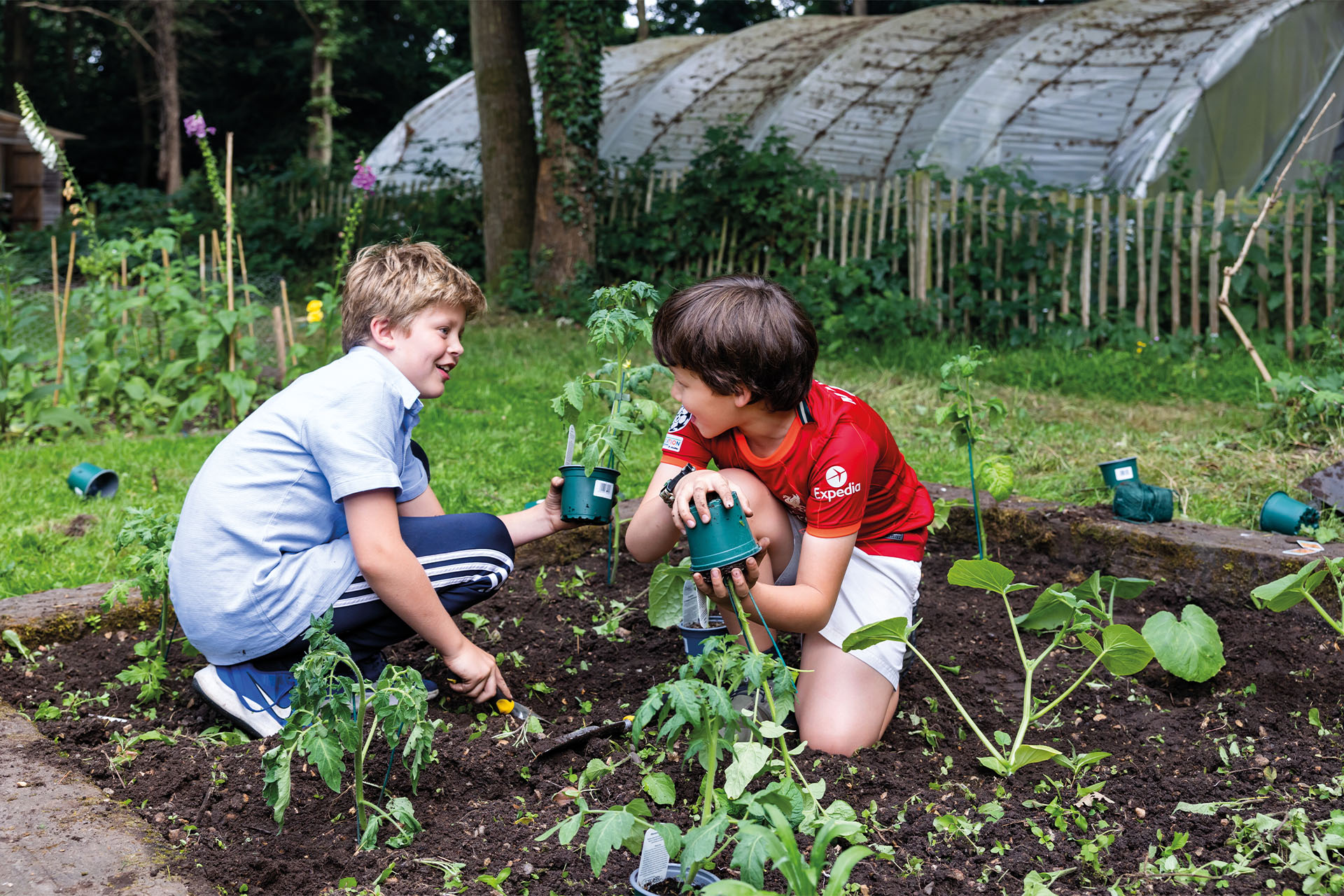
From veg patches to chicken coops, Anoop Bhuller discovers glorious green spaces inspiring a new generation of young farmers
Hanford
Lined with fruit trees, Hanford’s walled garden is at the heart of the school grounds and as much a place of learning for the girls as a source of daily nutrition. Hanford’s Head Chef, Joe Tyrrell, uses fruit and vegetables grown in the garden in the delicious meals he prepares every day. Every girl has their own raised bed where they grow fruit and veg, and in Year 6 each student plants a tree. Twice a term the girls plan a mini farmers’ market with produce on sale to parents – February is famous for lilies and lemons, October for pumpkins, squashes and pears. hanfordschool.co.uk
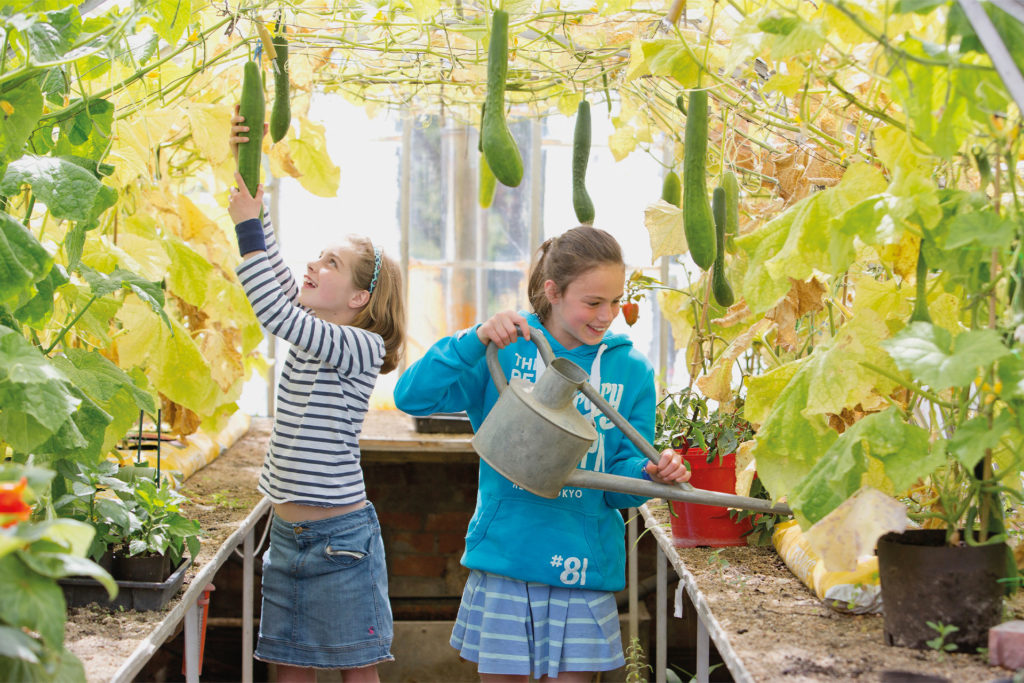
Abberley Hall
Next to the chicken coop and behind the stables you’ll find the Abberley Hall kitchen garden. Not only do pupils learn all about planting, cultivating and harvesting their fruit and veg, but they get stuck into preparing and cooking it, too. On a Saturday morning, a large cohort of pupils join Wild Cooking, one of the activities in the school’s exciting Discover programme; here they reap the rewards of what has been sown months before in the gardens. From squash soup to nettle fritters, they eat it all. abberleyhall.co.uk
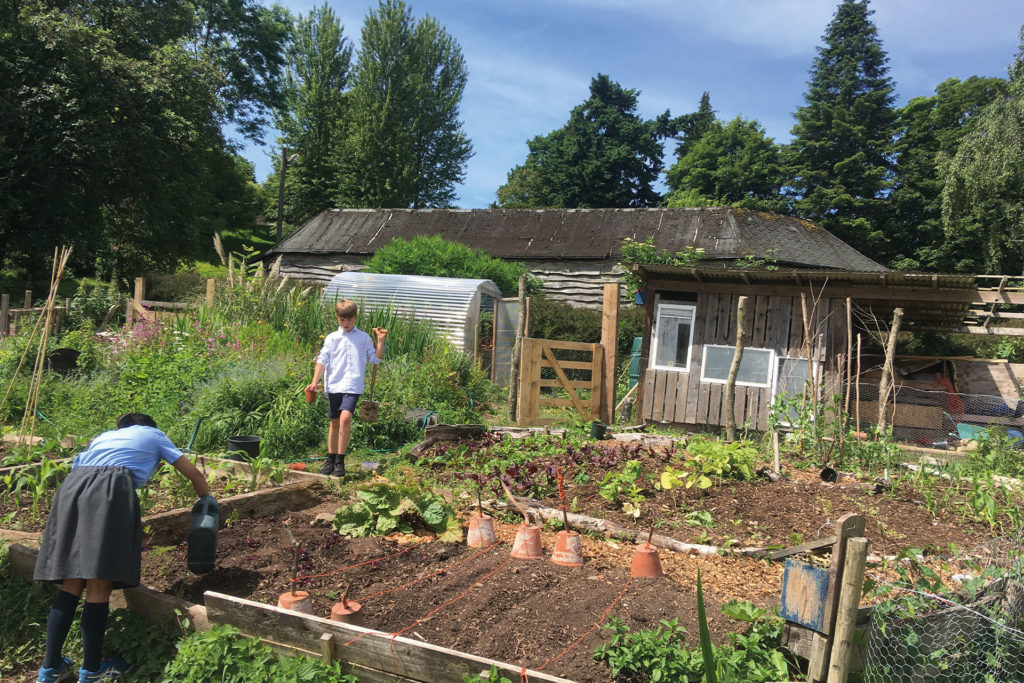
Brockwood Park
One of the oldest organic school gardens in Britain thrives at Brockwood. Small, holistic and vegetarian by design, the school ensures that its 70 teenage students, from 25 countries, spend time each week working with staff on the grounds and in the garden, as part of an in-house Human Ecology course and an extended Life Skills Gardening class. The school’s founder, radical philosopher and educator, Jiddu Krishnamurti, wished for students to have regular contact with nature and, at almost an acre in size, the kitchen garden provides the perfect setting for this. It is maintained in the traditional manner, with apple and pear trees, trained fruit, herbs and around 30 varieties of vegetables. brockwood.org.uk
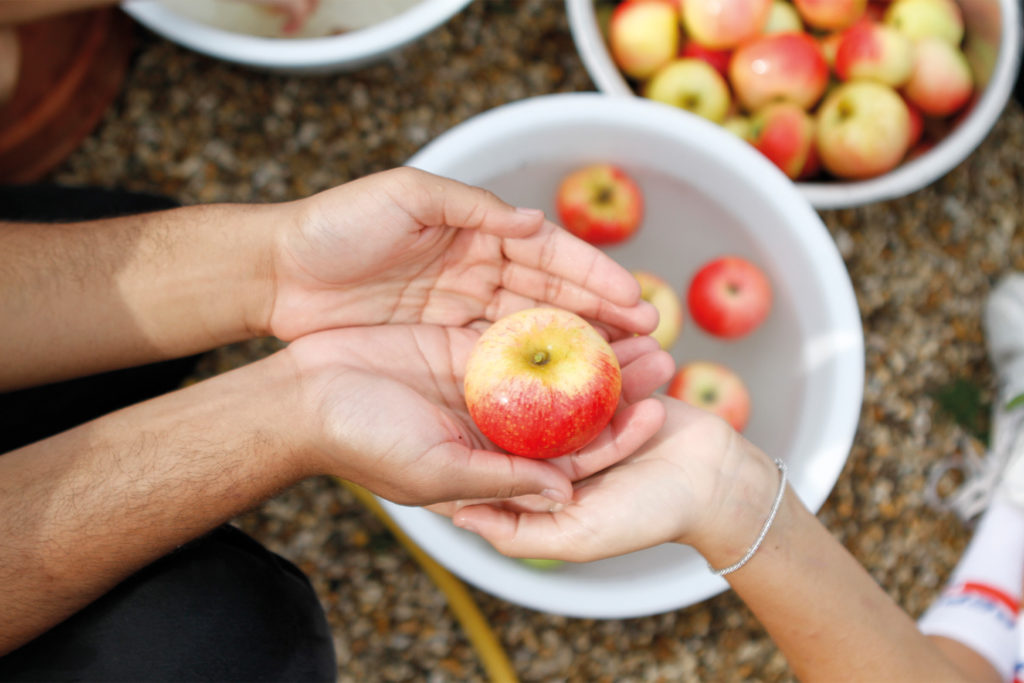
Hall Grove
Step inside the walled garden and find an oasis lovingly restored over the past six years to re-establish the pathways and formal structure of an original 18th-century garden. Under the guidance of teacher and horticulturist Joanne Buckler, students from three to 13 learn to grow food here entirely from scratch. Central to this endeavour is a 24-foot greenhouse where an entire class can work, learning to sow seeds and then harvesting and eating the fruits of their labours. From Pre-School sowing beans to Reception planting potatoes, all children get involved in this practical, cross-curricular learning opportunity, which incorporates Science, Maths, Technology and English. hallgrove.co.uk

Bedales
All produce is used in the school bakehouse to produce delicious, healthy, wholesome food, and teach a range of traditional cooking skills. Students get involved in every aspect of food production, from rearing the pigs for meat and mucking out the chickens, to growing vegetables, foraging in hedgerows and gathering herbs and spices. That includes learning to sow seeds, transplant seedlings, and to think about crops that can be used later in the bakehouse. The farm and livestock contribute to the garden by way of composted manure, and in turn the garden provides winter nutrition for livestock. A farm shop sells apple and lavender jelly, sweet pickled cucumbers with fennel, green tomato chutney, hedgerow jelly and raw honey. bedales.org.uk
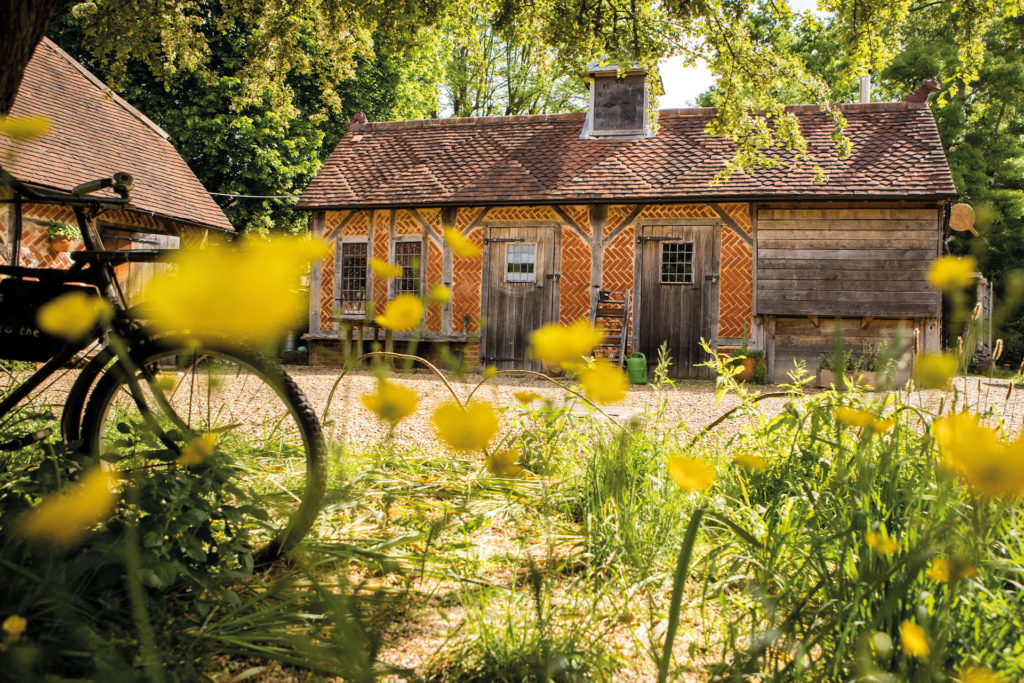
Hampton Court House
Founded in early 2022 by a group of green-fingered parents the Hampton Court House Community Garden has matured into a wonderful space nestled within the ivy-covered walls of the school. The produce that is grown, from tomatoes and pumpkins to strawberries and radishes, forms much of the seasonal school lunch menus. Home-grown strawberries go into infused-water coolers, while colourful salads are seasoned with nasturtium seeds and decorated with their brilliant flowers. Nothing goes to waste: the leaves of the nasturtium plant also go into home-made pesto, and the enormous pumpkin was saved to be the centre-piece of the dining table on Halloween! From the Gardening Club to the Early Years Forest School, the garden is enjoyed by all and provides a wonderful opportunity to teach the pupils about sustainability and the beauty of nature. hamptoncourthouse.co.uk
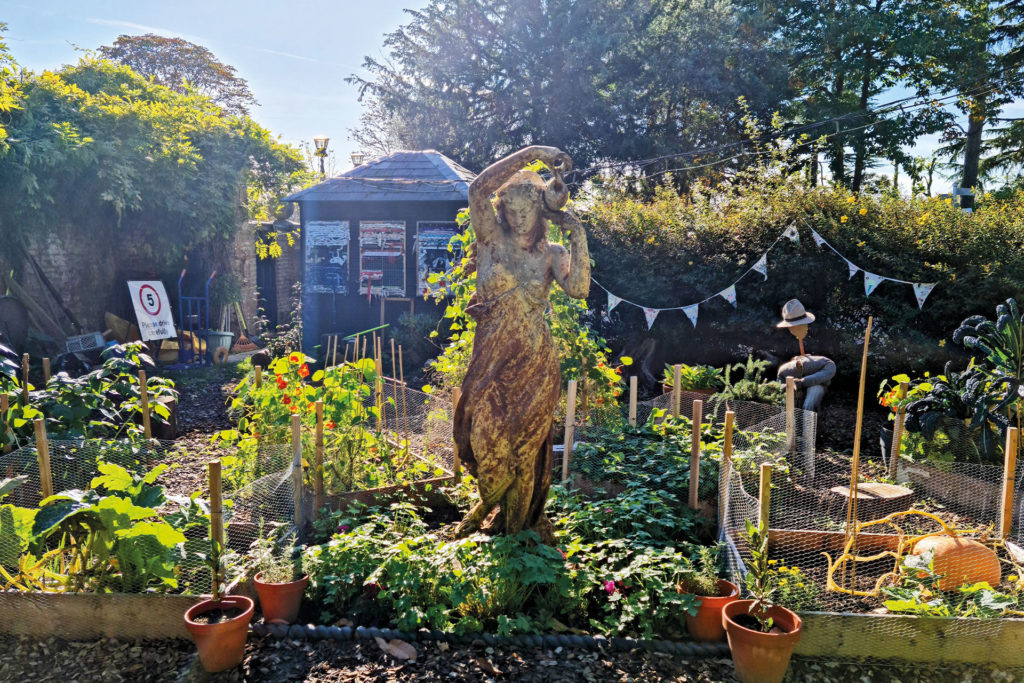
Danes Hill
This kitchen garden is considered a safe space for children to grow, harvest and share fresh produce. Recently extended with a new greenhouse installed; green-fingered pupils are eager to get planting. A Gardening Club runs every Monday and the Eco-Committee tends to the garden in their weekly meetings. The school says this is a hands-on-learning experience where the pupils get their hands dirty and embrace every opportunity, cultivating their inquisitive minds. daneshillschool.co.uk
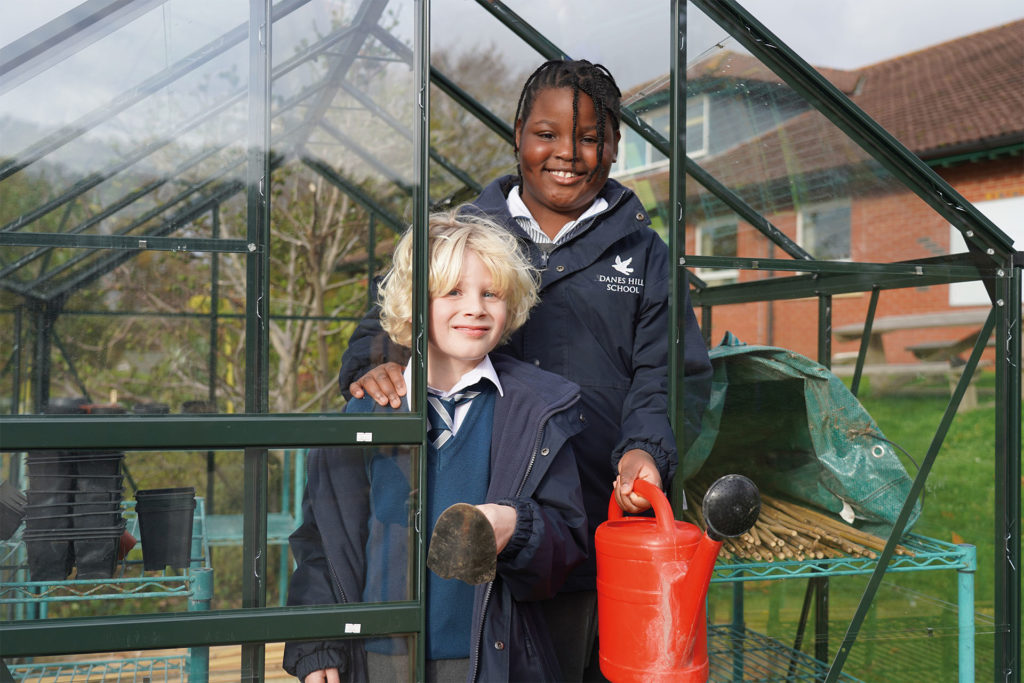
The Pointer School
At this Blackheath school with a reputation for serving outstanding school lunches, a Gardening club was set up last year to help children understand the basics of gardening and to gain first hand experience of growing their own fruits and vegetables. The club links up with the school kitchen, led by Executive Chef Nicolas Laridan, who for many years held two Michelin stars as Head Chef at Le Gavroche restaurant, to provide ingredients for use in school meals. With more than 300 mouths to feed and a very small roof garden, this may just be a taste, but it gives the children a great sense of achievement seeing the fruits of their labour on the lunch menu. pointers.school
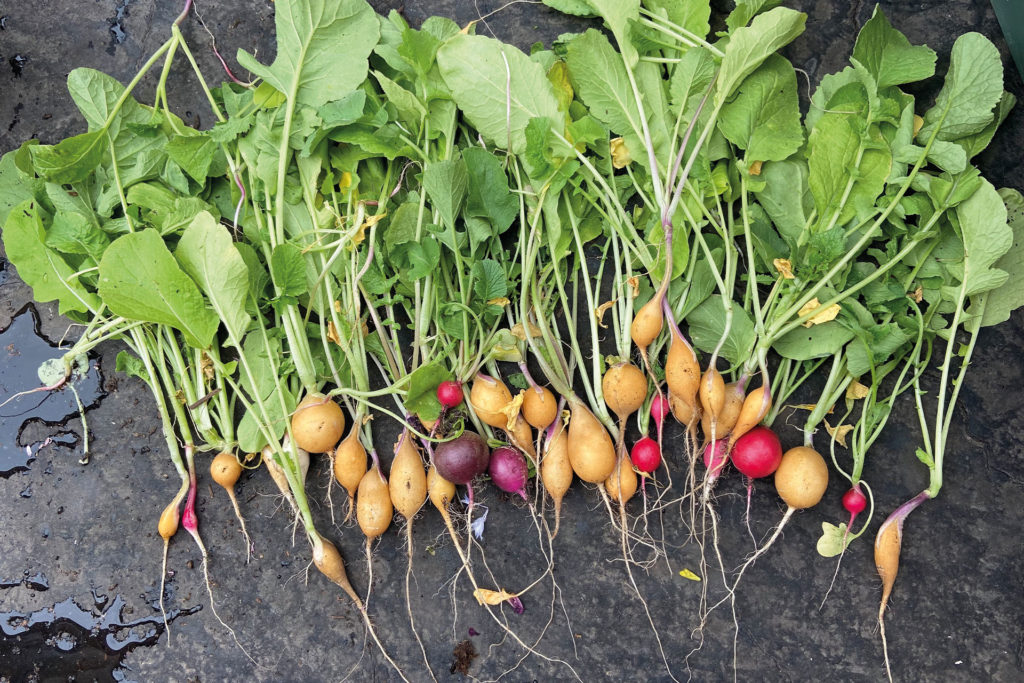
Cottesmore
Engaged in developing the ‘Sustainability Programme for Schools’ run by the The Kindness Bank, the school has introduced a new subject, sustainability, as part of the curriculum. This provides a hands-on education in how the pupils can make the school and the site more sustainable. It incorporates the NFU’s Farmvention and STEMvention programmes and has children design, cost, grow and serve up a sustainable menu – pupils are given their own gardening plot and are fully involved in the entire process, conducting market research, applying Maths and actually growing their own produce that can be cooked in the kitchens for lunch or supper. They learn about food supply chains, carbon footprint and soil fertility, not to mention develop entrepreneurial skills which are going to become essential during their lifetimes. cottesmoreschool.com
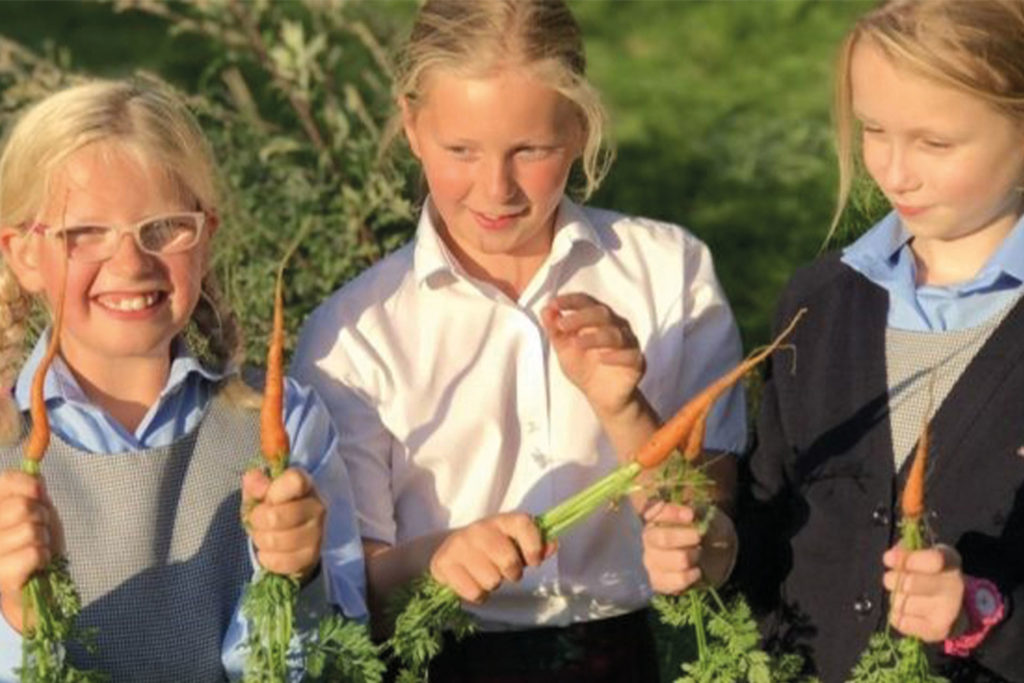
Bryanston
The school’s Pioneering programme sees pupils tend to the Kitchen Garden in order to support the dining hall; produce is incorporated into some of the 3,000 meals provided per day. In particular, Pioneer pupils maintain and harvest fruit from the Bryanston Orchard, established in 2013 with the aim of growing heritage varieties of fruit and is part of a network of heritage orchards in the Southwest. Most of the fruit are old or disappearing varieties, including the very rare Bryanston Gage. The Kitchen Garden also provides subtle ingredients in our cooking such as edible flowers. These help to enhance menus, especially function events. Bryanston’s honeybee population, looked after by the Beekeeping Club, also supplies some fresh honey. bryanston.co.uk
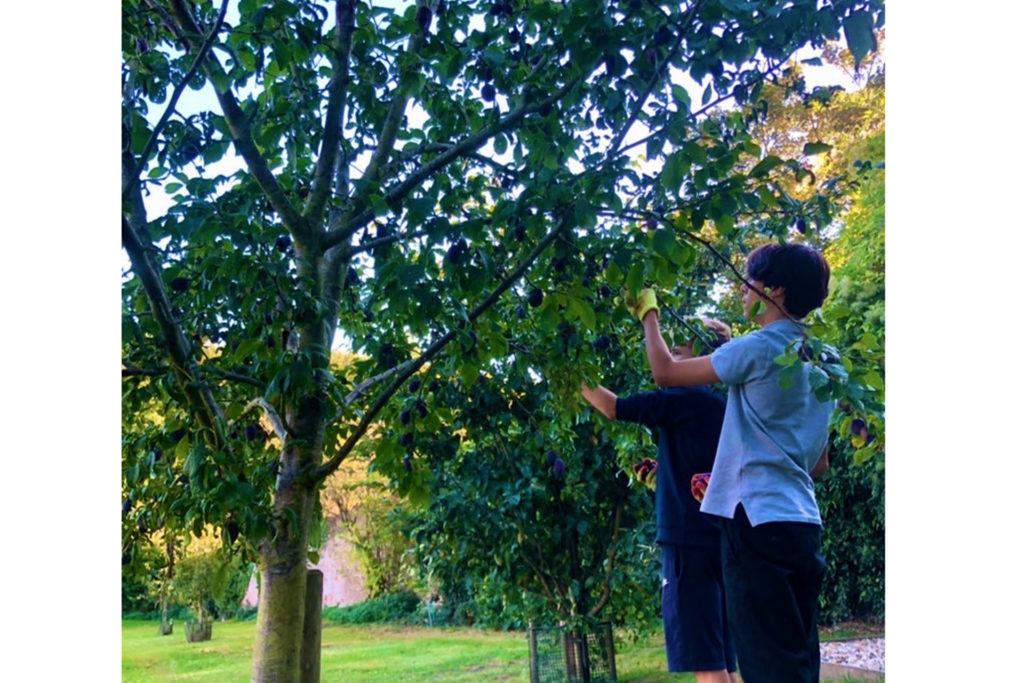
Ludgrove
For the school’s green-fingered fraternity there is a beautiful sun-dappled corner of grounds that houses an allotment area of eight, 3m x 4m plots for the school’s popular Gardening Club. The boys often bring their love of growing with them from home and there is always an enthusiastic posse of pupils keen to get their hands dirty. Boys plant and tend their gardens with dedication and care, making sure they visit throughout the week and especially spending more time during Thursday, after activities, and on the weekends. Spending time outdoors in such a mindful activity is an enormous benefit to the boys’ positive mental health, boosting self-esteem and teaching patience and responsibility; it has also benefited the school kitchen. ludgrove.net
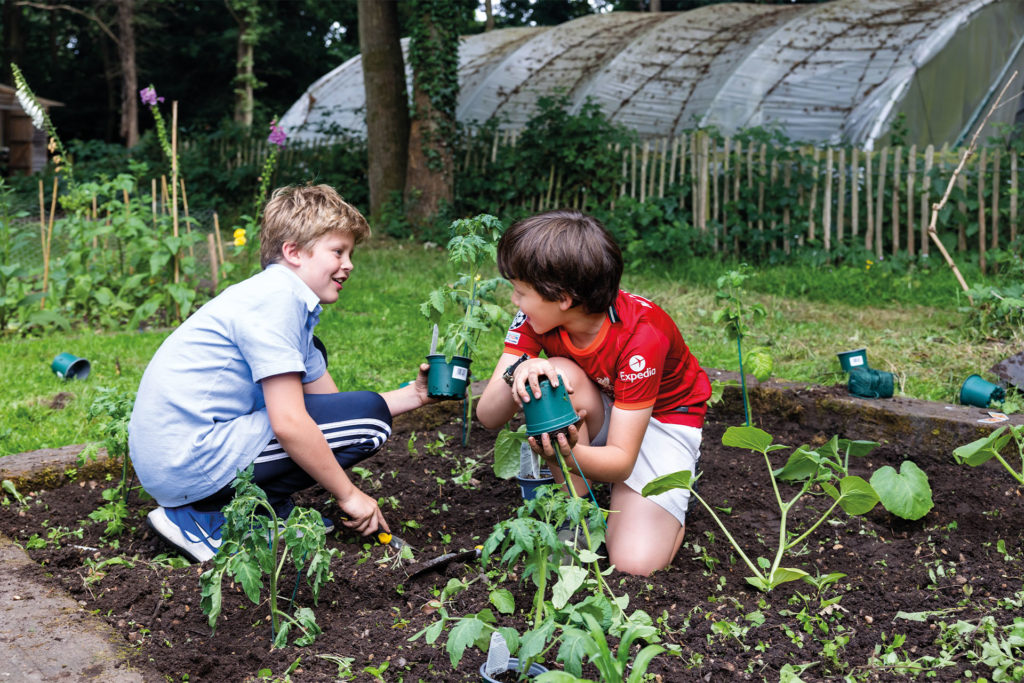
See the school’s online listings here: Hanford, Abberley Hall, Bedales, Hampton Court House, Danes Hill, Cottesmore, Bryanston, Ludgrove



